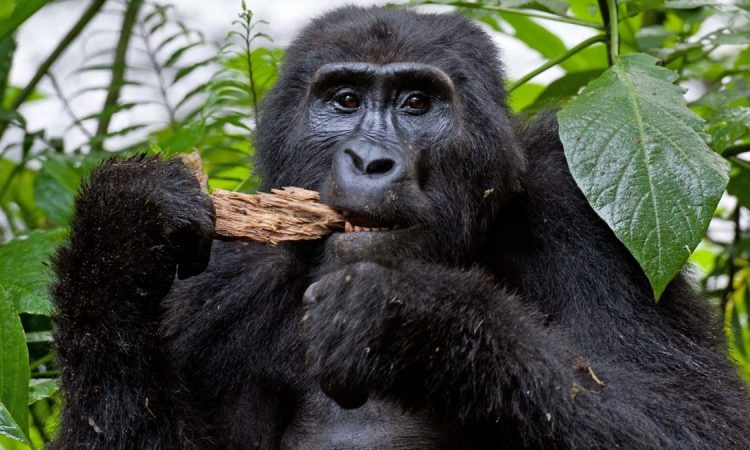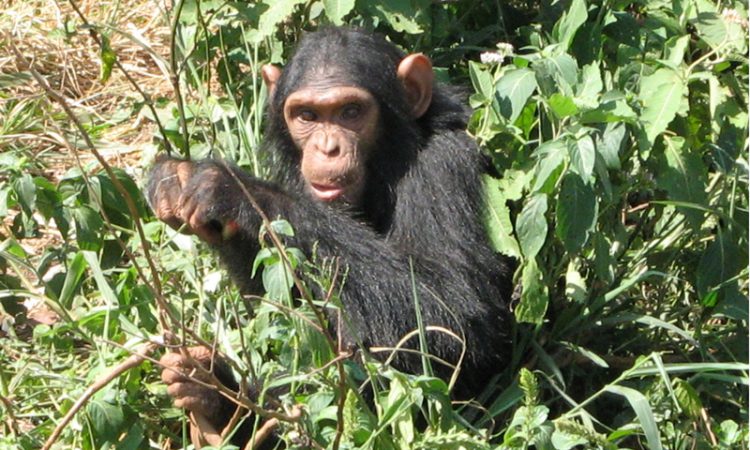Chimpanzee Trekking in Rwanda during COVID-19
Chimpanzee Trekking in Rwanda during COVID-19: Chimpanzee Trekking in Rwanda is one of the most rewarding activities you can choose to take part in for a rewarding Rwanda safari given the different rewarding experiences you will get to live when you visit Nyungwe national park to take part in the activity. Given the world’s state that is the covid-19, a number of tourists have showed their concern to visit a number of African destinations in order to take part in different activities but with the emergence of new covid cases and the fact that some destinations don’t meet the world’s health standards for destinations safe for travel during the pandemic, it has scared off a number of tourists interested in visiting the destinations.

However it should be noted that among the different destinations, Rwanda is among the few destinations that have be declared safe for travel during the covid-19 global pandemic and this is a result of the governments initiatives to ensure that the people of Rwanda are safe from contracting the virus and this has included government distribution of face masks, imposing of a number of health restrictions on tourism operating businesses and failure to comply they are fined and in some instances they are closed and this in the long run has enabled tourists interested in taking part in chimpanzee trekking in Rwanda during covid-19 to have the opportunity to make their dreams come true.
Chimpanzee trekking in Nyungwe national park involves trackers hiking through Nyungwe forest or cyamudongo forest of the park where you can access one of the four habituated chimpanzee troops in Nyungwe national park. When you get to the habituated troops, you will have the opportunity to spend time the chimpanzees observing their different features like their feeding patterns, grooming patterns, their co-existence with one another among other rewarding features of the primates for a memorable experience with the primates.
Refunds and Cancellation Policies for chimpanzee trekking Due to Covid-19
After booking for a chimpanzee trekking permit from the Rwanda development board or from a trusted tour operator or tour agent you will have to present upon your arrival in Nyungwe national park in order to take part in the memorable activity. Interesting about chimpanzee trekking in Rwanda during the pandemic is the fact that there is flexibility on all the permits booked where you will get the chance to cancel at any given time of the year this because of the different uncertainties caused by the pandemic and this may include flight delays as a result of lockdown, in case you test positive for the virus before you visit the country and other uncertainties which may force you to cancel your booking. It should also be noted that you can cancel the permit or reschedule to another tracking date at no extra cost which is also another reason to consider visiting Rwanda to take part in chimpanzee trekking in Nyungwe national park.

Safety precautions to follow as you take part in chimpanzee trekking in Rwanda during covid-19
- It is advisable to regularly put your face mask on to avoid the spread of the virus and also avoid contracting the virus this is because a tourist might have contracted the virus on their transfer to the country or the park before taking part in the activity therefore it is necessary for you to avoid the spread of the virus.
- Regular disinfections of surfaces you come across of regularly is highly emphasized for instance tourist vans should be disinfected regularly to avoid contraction of the virus this is because the virus tends to live on surfaces for more than 12 hours which puts a high risk to tourists on contracting the virus.
- Regular sanitising of one’s hands should be ensured because of the fact that you might get in contact with contaminated surfaces which can spread the disease but with regular sanitising, it will ensure you avoid contracting the virus which you can easily spread through handshakes and this has also led to the stressing of the avoiding of handshakes by the government.
- During chimpanzee trekking in Rwanda during covid-19, among the safety precautions to avoid the spread of the virus, the country and Nyungwe park management has also put in place the maintaining of social distance while they track the primates to contracting the virus and also avoid the spreading of the virus to the primates.
Guidelines for chimpanzee trekking
- For tourists interested in chimpanzee trekking in Uganda during covid-19, they should avoid smoking in presence of the primates because increased exposure to smoke can lead the vulnerable species to catch diseases like pneumonia, lung cancer among others with exposure to smoke which can be fatal to the primates
- During chimpanzee trekking in Rwanda, you should follow the lead of the guide in order to have a safe activity this is because the guide will tae you through the safe routes along the different hiking trails in Nyungwe national park to access the chimpanzee troop and failure to follow the guide, you can encounter vicious wild animals that can attack you.
- You should avoid eating in the presence of the chimpanzees to avoid spreading diseases to the primates in a process this is because the highly active primates can attack you just to get a piece of what you’re eating and in the process in case you contracted the virus, when tourists have a number of diseases that they can spread to the primates through food this is because the primates will attack you just to get a bite of your food and in the process it can also be fatal.
- You should maintain a distance of 7 metres to spreading any disease or the virus to the chimpanzees when you get in contact with them.
- Littering in the park should be avoided during chimpanzee trekking in Rwanda because it can cause accidents like the primates choking on the litter which can be fatal to the primates and in cases where the litter is contaminated the primates can contract the virus which can be quite a hard thing to deal with given the fact that they are highly active species.


